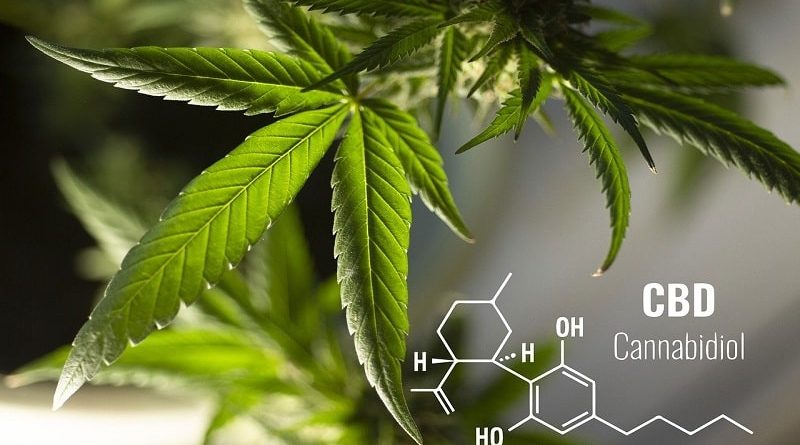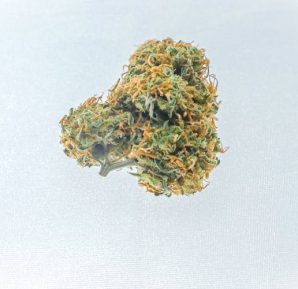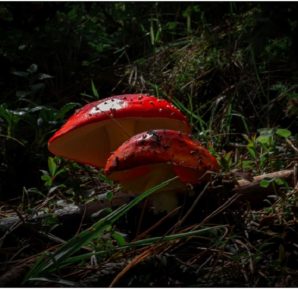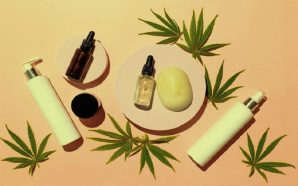Cannabidiol (CBD) is a unique, cannabis-derived product that offers a variety of health-promoting benefits. While the extent and nature of these benefits have yet to be fully explored or utilized, the strength and range of their effects are only now being understood. The emergence of full-spectrum CBD oils, for example, is in direct response to the CBD industry’s growing understanding of the entourage effect. But the entourage effect could mean more than just production variance; it could disrupt the way the effects, applications, and legalization of CBD products are discussed. The only obstacle, however, is the EU’s current standing on cannabidiol, including those that utilize the entourage effect.
Understanding the Entourage Effect
Professor Rapheal Mechoulam, also referred to as the father of cannabis research first proposed the concept of the entourage effect back in 1998 with his colleague Professor Shimon Ben-Shabat at the Hebrew University of Jerusalem. While studying the nature of the 2-arachidonoylglycerol (2-AG) molecule and its interactions with the human body, the two researchers discovered that 2-AG was present in some of the organs and tissues in mice. Wherever 2-AG was found, it was typically located with two other chemical compounds: 2-linoleoylglycerol and 2-palmitoylglycerol. While these two additional compounds did not interact directly with the endocannabinoid systems of the animal subjects, they were observed to improve the binding ability of 2-AG and increase some of its effects, including analgesia. Essentially, what this means is that compounds (like the two listed above) that are unable to bind with the endocannabinoid system’s receptors are able to optimize the binding qualities and effects of compounds that do (such as 2-AG). This, in its simplest terms, is the entourage effect.
Applying the Entourage Effect to CBD
The entourage effect, from a CBD perspective, refers to the naturally occurring chemical compounds in the cannabis plant (cannabinoids) that enhance the therapeutic index of cannabidiol. The entourage effect’s emergence as a validated scientific theory has encouraged manufacturers to explore the utilization of full-spectrum CBD extraction.
Full-spectrum CBD contains a wide range of chemical compounds that facilitate or contribute to the entourage effect. The goal of full-spectrum CBD is to leverage as many of the effects of cannabidiol as possible while also improving the strength of said effects. Full-spectrum CBD oil, for this reason, offers a potentially higher quality and pricing bracket than other CBD products.
Combining terpenes and other health-promoting compounds, CBD manufacturers and distributors may not only be able to elevate the quality of their products but their profit margins as well. CBD isolation is an expensive process that requires the filtration of potentially beneficial cannabis chemicals. By retaining more of the cannabis plant, manufacturers and distributors can experience higher cost savings through more favourable price margins and production efficiencies. Similarly, essential oils such as terpenes may allow CBD distributors to market their products more effectively in the wellness space.
The Power of Terpenes
Terpenes, otherwise known as terpenoids, are aromatic molecules that evaporate easily and produce a variety of health-promoting effects. When they evaporate, the vapors produce a fragrant smell which can be quickly detected upon interaction with the sensors in the nose. The naturally occurring terpenes of a particular cannabis strain are, in fact, what determines marijuana’s distinct scent and particular psychoactive flavour. But it is terpenoids’ interactions with cannabinoids that make it particularly valuable for CBD distributors and producers.
In a 2011 research article, Dr. Ethan Russo, Director of Research and Development at the International Cannabis and Cannabinoids Institute in Prague, reported that cannabinoid-terpenoid interactions “could produce synergy with respect to the treatment of pain, inflammation, depression, anxiety, addiction, epilepsy, cancer, fungal and bacterial infections.” The emphasis on the word ‘could’ is due to the lack of human testing. While the entourage effect has been examined in animals, its impact in human applications is, for now, limited to anecdotal research.
The only caveat of the entourage effect in CBD is that it likely includes the participation of THC. According to Dr. Russo’s 2011 paper, chemotypes that are rich in terpenoid content offer a range of complementary pharmacological activities, including the improvement of the “therapeutic index of cannabis extracts containing THC.” THC, of course, is the biggest legal obstacle for the CBD industry.
The Roadmap for Full-Spectrum CBD Oil
Why governments are still hesitant to fully legalize CBD and cannabis is the compounds’ utilization of THC and the concern regarding its psychoactive properties. Europe, for instance, only recently upgraded the THC threshold for CBD to 0.3%. If the entourage effect is real and significant, which the aforementioned research documents suggest, then a low THC percentage may limit the overall quality and strength of its benefits. Moreover, due to the governmental concern of THC, testing, extraction, and production are often negatively affected. For example, any cannabis materials that exceed the dry weight THC threshold must be immediately destroyed, increasing disposal costs and manufacturing efficiencies.
Hopefully, as the North American markets continue to grow and develop, the European Union will be more attentive to pro-CBD studies that highlight the safety profile of the materials. In the meantime, it is important as a CBD distributor to have access to a high-quality supplier that can utilize the entourage effect while working within legislative restrictions.
Author: Philipp Fuhrmann
Mr. Fuhrmann has extensive experience in international compliance, international business development and in navigating legislative frameworks in the Hemp and Marijuana industry. He is currently the President and CEO of CanX CBD Processing Corporation, a wholesale manufacturer of premium CBD. Mr. Fuhrmann also has a background in corporate structuring and has raised funds for a variety of projects ranging from technology to medicinal marijuana, hemp, and CBD.












